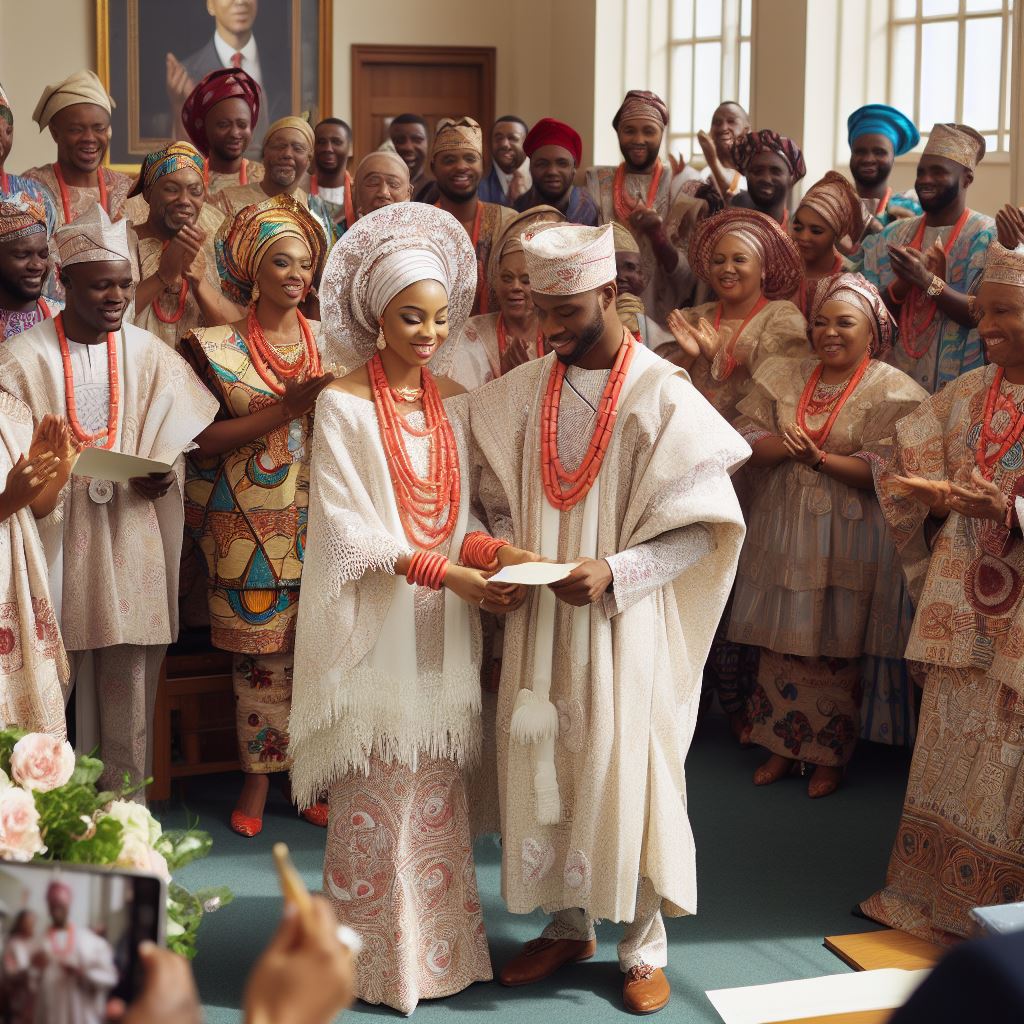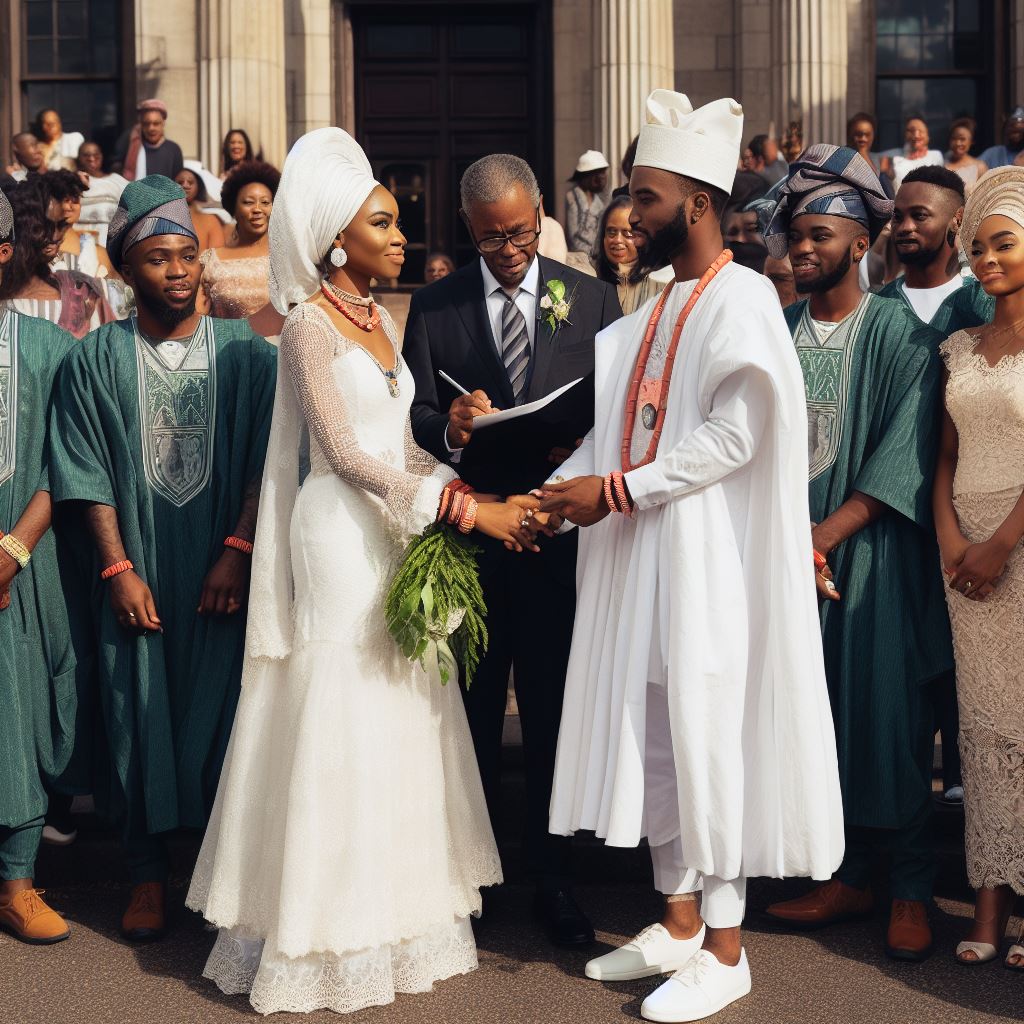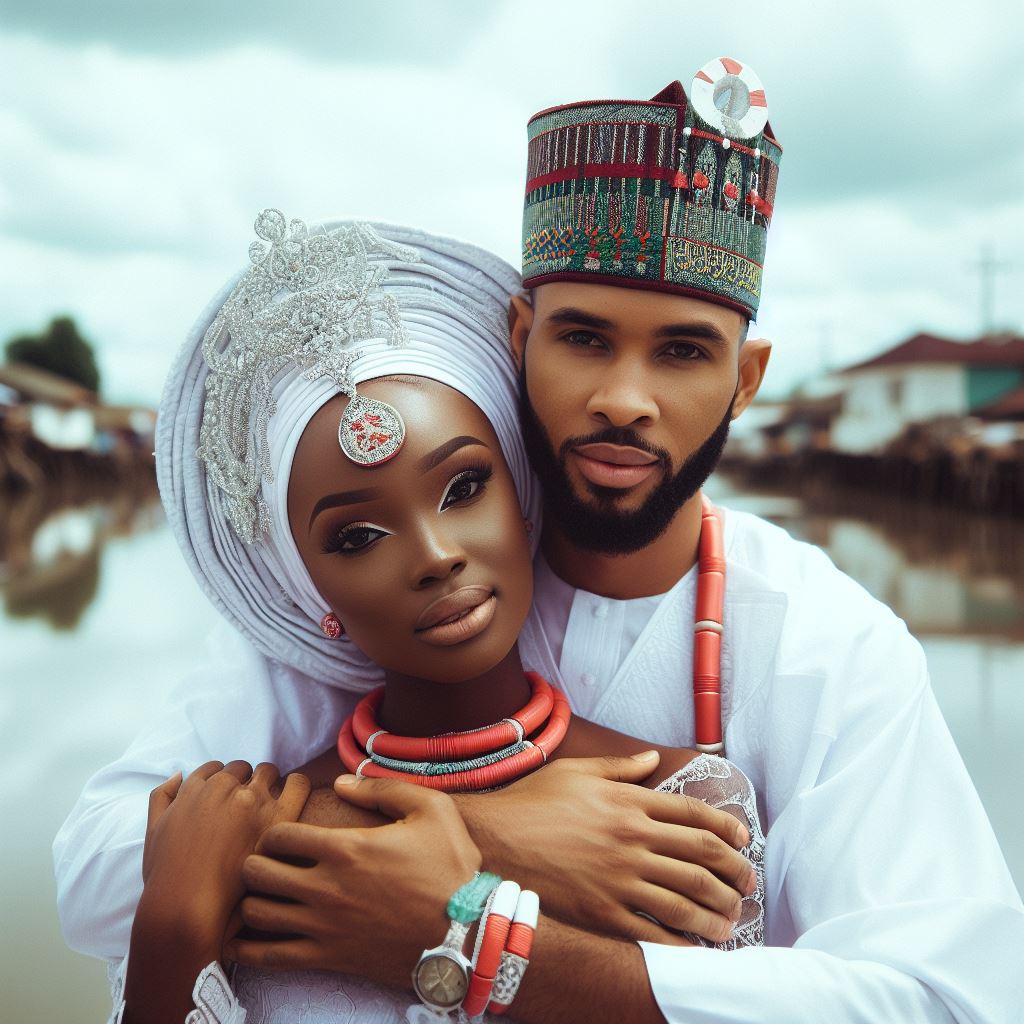Introduction
Marriage by ordinance in Nigeria is a legal form of marriage that is governed by statutory laws.
It requires the parties involved to obtain a marriage license from the relevant government agency.
Discussing the advantages and disadvantages of marriage by ordinance in Nigeria is crucial because it provides insights into the legal framework and its impact on individuals, families, and society as a whole.
Brief overview of marriage by ordinance in Nigeria
Marriage by ordinance in Nigeria is mainly regulated by the Marriage Act, which provides the legal requirements and procedures for solemnizing marriages.
It applies to all citizens, regardless of their religious beliefs.
Importance of discussing the advantages and disadvantages
Understanding the advantages and disadvantages of marriage by ordinance allows individuals to make informed decisions about their marital status.
It helps in evaluating the legal protections and benefits that come with this form of marriage.
Additionally, discussing these aspects creates awareness about the challenges and limitations that couples may face in the process.
This knowledge can guide couples in navigating potential hurdles and enhancing their overall marital experience.
By exploring both the positives and negatives, individuals can make well-informed choices and seek ways to mitigate risks.
Society can also benefit from an open dialogue that encourages continuous improvement in the legal framework surrounding marriage by ordinance.
Basically, discussing the advantages and disadvantages of marriage by ordinance in Nigeria is crucial for individuals seeking legal recognition of their unions.
It empowers couples with the knowledge needed to navigate the complexities of the legal framework, ensuring a more meaningful and fulfilling marital journey.
Read: Marriage by Ordinance vs. Traditional Marriage: What’s Different?
Advantages of Marriage by Ordinance in Nigeria
Marriage by ordinance in Nigeria offers several advantages to couples who choose this legal path.
These advantages provide various benefits, security, and recognition to the individuals involved.
Legal recognition and protection
When a couple gets married by ordinance, their social status is elevated and recognized by law.
They gain respect and acceptance from society as a legally married couple.
This recognition can have a positive impact on their personal and professional lives.
Additionally, marriage by ordinance ensures that the rights and benefits conferred by law are extended to the couple.
These rights and benefits may include healthcare coverage, tax incentives, pension plans, and social security benefits.
This legal protection safeguards their interests and provides financial stability.
Formal commitments and responsibilities
Marriage by ordinance fosters a stronger sense of commitment and dedication between partners.
By choosing to marry under legal provisions, couples are making a public declaration of their love and commitment to each other.
This formal commitment strengthens the bond between them and encourages them to work together for a successful marriage.
Moreover, marriage by ordinance establishes a legal framework for family life.
It outlines the responsibilities and obligations that partners have towards each other and towards their children.
This legal framework encourages stability and accountability within the family unit.
Financial and property rights
One of the significant advantages of marriage by ordinance is the possibility of joint ownership.
When a couple is legally married, they can jointly own assets such as property, businesses, and investments.
This allows them to pool their resources and make decisions together, promoting financial security.
Furthermore, marriage by ordinance provides inheritance and succession rights to the married couple.
In the event of one partner’s death, the surviving spouse is legally entitled to inherit the deceased partner’s property and assets.
This ensures that the surviving spouse is financially protected and can maintain their standard of living.
Generally, marriage by ordinance offers several advantages in Nigeria.
It provides legal recognition and protection, formal commitments and responsibilities, as well as financial and property rights.
These advantages contribute to the stability and well-being of married couples, enhancing their quality of life.
It is important for individuals to consider these advantages when deciding on the type of marriage they wish to enter into.
Read: Understanding ‘Marriage by Ordinance’ in Nigeria: A Primer
Disadvantages of Marriage by Ordinance in Nigeria
Marriage by ordinance in Nigeria brings along several disadvantages that couples need to consider before taking the plunge.
Financial obligations and costs
One of the main drawbacks is the financial burden it imposes on the couple.
Expensive wedding ceremonies, often influenced by societal expectations, can put immense strain on the couple’s finances, leaving them facing a significant amount of debt right at the start of their journey together.
Furthermore, the expenses of setting up a new household and managing day-to-day expenses can cause additional financial stress and strain on the relationship.
Social pressure and increased expectations
Another disadvantage of marriage by ordinance in Nigeria is the social pressure and increased expectations that come with it.
Unrealistic societal standards for marital success can lead to feelings of inadequacy and unhappiness within the relationship.
Couples may feel the need to meet certain expectations, such as owning a house or having children, even if they are not ready for such responsibilities.
This can create a sense of discontent and put unnecessary strain on the marriage.
Potential for cultural and religious clashes
Additionally, cultural and religious clashes can pose significant challenges for couples in marriages by ordinance.
Interfaith or intercultural marriages may face difficulties as they navigate differences in beliefs, traditions, and practices.
These differences can give rise to conflicts and misunderstandings between spouses and their families, adding strain on the marriage.
The need to compromise or integrate cultural and religious customs can be a delicate and sensitive issue that requires open communication and understanding from both partners.
Essentially, while marriage by ordinance in Nigeria offers legal recognition and benefits, there are also several disadvantages to consider.
The financial obligations and costs associated with wedding ceremonies and setting up a household can cause significant stress on the couple’s finances.
Societal pressure and unrealistic expectations can lead to dissatisfaction within the marriage, while cultural and religious differences can give rise to conflicts and misunderstandings.
Couples contemplating marriage by ordinance must carefully weigh the pros and cons to make an informed decision best suited to their circumstances and aspirations.
Read: Exploring Marriage Rituals in Different Nigerian Tribes

Comparison with other types of marriage in Nigeria
Traditional and cultural marriages
1. Advantages and disadvantages
- Traditional marriages celebrate cultural heritage but may lack legal recognition.
- The customs and rituals in traditional marriages strengthen community bonds and family ties.
- Disadvantages include limited legal protection for spouses and children and potential inequality in certain customs.
2. Comparison to marriage by ordinance
- Traditional marriages emphasize cultural practices, while marriage by ordinance focuses on legal requirements.
- Traditional marriages often have less paperwork and formalities compared to marriages by ordinance.
- Marriage by ordinance provides legal protection and recognition, which traditional marriages may lack.
Islamic and customary marriages
1. Advantages and disadvantages
- Islamic marriages, based on religious principles, provide a strong foundation for marital commitment.
- Customary marriages preserve cultural values and traditions, ensuring societal cohesion.
- Disadvantages include potential gender inequality within Islamic marriages and limited legal recognition of customary marriages.
2. Comparison to marriage by ordinance
- Islamic marriages prioritize religious obligations, while marriage by ordinance emphasizes legal compliance.
- Islamic and customary marriages may have fewer legal requirements and costs compared to marriages by ordinance.
- Marriage by ordinance offers legal protection and safeguards, which may be lacking in Islamic and customary marriages.
Traditional and cultural marriages
1. Advantages and disadvantages
Marriage in Nigeria takes various forms, each with its own advantages and disadvantages.
Traditional and cultural marriages play a significant role in preserving cultural heritage and strengthening community bonds.
While these marriages celebrate customs and rituals, they often lack legal recognition and may provide limited legal protection for spouses and children.
However, they offer a sense of belonging and preserve traditional values.
2. Comparison to marriage by ordinance
In comparison, marriages by ordinance, also known as civil or statutory marriages, prioritize legal requirements and formalities.
They provide legal recognition, protection, and rights to spouses and children.
Marriage by ordinance ensures equal treatment under the law and safeguards against potential gender inequality.
However, the process may involve more paperwork, costs, and adherence to legal procedures.
Islamic and customary marriages
Islamic marriages, guided by religious principles in Nigeria, offer a strong foundation for marital commitment.
These marriages emphasize faith, compatibility, and mutual understanding based on Islamic teachings.
Customary marriages, on the other hand, reflect specific cultural practices and beliefs.
They focus on preserving cultural values and traditions, promoting societal cohesion.
1. Advantages and disadvantages
Advantages of Islamic and customary marriages include their ability to maintain religious and cultural identities, which can enhance the sense of belonging within the community.
However, both types of marriages may lack legal recognition and provide limited legal protection, particularly for women and children.
Additionally, gender inequality may be a concern, especially within Islamic marriages.
2. Comparison to marriage by ordinance
When comparing these types of marriages to marriage by ordinance, it becomes evident that marriage by ordinance places greater emphasis on meeting legal requirements and obtaining legal recognition.
While Islamic and customary marriages may involve fewer formalities and costs, they may not provide the same level of legal protection and rights as marriages by ordinance.
In a nutshell, each type of marriage in Nigeria has its own unique advantages and disadvantages.
Traditional and cultural marriages preserve heritage and foster communal bonds, but often lack legal recognition.
Islamic and customary marriages reflect religious and cultural values, but may face challenges related to legal protection and gender equality.
Marriage by ordinance prioritizes legal compliance and safeguards, ensuring legal rights and protection for spouses and children.
Understanding the differences between these types of marriages allows individuals to make informed decisions based on their values, beliefs, and legal needs.
Read: Common Hurdles and Solutions in Marriage Certification
Conclusion
A recap of the advantages and disadvantages discussed in relation to marriage by ordinance in Nigeria highlights the following points:
- Advantages: legal recognition, financial benefits, societal acceptance, and protection of rights.
- Disadvantages: societal pressure, financial burden, potential loss of personal freedom, and increased responsibilities.
It is crucial to emphasize the importance of understanding these pros and cons before entering into a marriage by ordinance.
This knowledge can help individuals make informed decisions, considering their personal circumstances and values.
All in all, individuals must carefully assess the advantages and disadvantages of marriage by ordinance in Nigeria.
They should consider their goals, aspirations, and personal values to make choices that align with their desired outcomes.
By encouraging individuals to make informed decisions about marriage by ordinance, we empower them to take charge of their own lives and ensure that their personal circumstances and values align with their choices.




